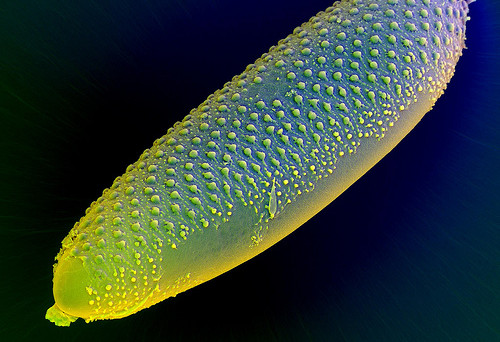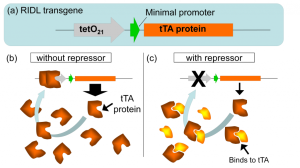
Dengue fever. Chikungunya. Strange names in a strange place, they may seem like distant concerns in most parts of the United States. However, the Florida Department of Health reported 24 cases of dengue fever and another 18 confirmed cases of chikungunya in 2014. Both of these diseases cause cripplingly painful and prolonged illness, and have been marching their way into the US over the last several years.
Both diseases are transmitted by mosquitoes, primarily by Aedes aegypti and secondarily by Aedes albopictus. This latter species is not native to the United States, arriving in 1985 hidden away in their larval form in standing water trapped within a shipment of tires. Aedes aegypti was itself introduced from Africa into the New World on ships used for exploration and European colonization. Their preferences to breed in water storage containers, flower vases, buckets, and other man-made vessels puts them in close proximity with humans.
There are currently no vaccines for dengue or chikungunya, though a dengue vaccine is in the works and may be available as soon as 2016. Some success has also been achieved towards developing a vaccine for chikungunya. However, the development of a dengue vaccine has been complicated by the fact that dengue is caused by 4 different, but related, serotypes which causes difficulties for vaccine development and control.
To date, the only solution to these issues has been to control the vectors capable of transmitting these diseases to us. Until recently, the only option available to do so required the use of broad spectrum insecticides, which are currently being used throughout Florida and other states in the US. Unfortunately, native populations of mosquitoes and other insects are also susceptible to these pesticides. Mosquitoes may be the easiest species on the planet for us to loath, but they still perform roles in their ecosystems, as aquatic filter feeders in their larval stage and a food source for fish, birds, and other animals. While these chemicals are generally far less detrimental than pesticides used in the past, they are still not capable of striking a single target, and carry with them a risk for environmental contamination. Even worse, Ae. aegypti is becoming increasingly resistant to them.
Thankfully, pesticides are no longer the only option. Genetically modified mosquitoes provide an effective alternative. Luke Alphey, formally Chief Scientific Officer of Oxitec Ltd., has invented a brilliant technology in which a lethal gene is inserted into mosquito eggs that kills them as larvae. This lethal gene is switched off by a separate gene but only in the presence of tetracycline, allowing scientists to rear massive amounts of these modified mosquitoes in the laboratory.

Swarms of these modified male mosquitoes have been released in the Cayman Isles and in Brazil, where they overwhelmed wild type males in breeding efforts by mating with females within the population. Test releases in both areas have been highly successful; with the Cayman Islands reporting population reductions as high as 96% after the first application. Oxitec would like to bring this control approach to the US, and specifically into the Florida Keys.
Public outcry over the project has been tremendous, particularly within the Florida community where the mosquitoes will be released. A public petition to stop the project has generated over 140,000 signatures, and fears of what a genetically modified insect may mean in the long term are running high. These concerns, though understandable, are largely unfounded and the Florida Keys Mosquito Control Board has given its support pending the federal approval by the FDA.
The males that Oxitec will release free of charge live only one week in the environment and their young will not survive in the absence of tetracycline, a substance not common in nature. The environmental impact of these mosquitoes is negligible; the proteins they produce do not cause the secretion of compounds that would cause harm to any animal that may ingest them. The method is so species-specific that no other insects can be adversely affected; if anything, removing Ae. aegypti would aid other species by removing a source of competition. As there are no predators for which mosquitoes are their only source of food, unintended effects on other organisms in a food chain are also quite unlikely. As these individuals cannot survive outside of the laboratory, where they are supplied with a steady supply of tetracycline, they are all removed from the ecosystem very quickly compared with the use of industrial insecticides. Another concern is regarding the likelihood of females being released by mistake, that would add to the biting nuisance or causing other problems. Some 70 million of these mosquitoes have been released to date without having a negative impact on human health, and while there is always the possibility of a female slipping past the sorting process, there is nothing harmful about their bite.
While the choice of the Florida Keys as the first location to release these modified male mosquitoes seems natural, given the presence and danger of dengue and chikungunya and Ae. aegypti, I wonder if Luke Alphey and his colleagues at Oxitec have been aware of the tumultuous and unique history of this part of the US. People who live here consider themselves quite independent from the federal government, to the point that they tried to secede from the US and form their own Conch Republic in 1982. Despite this history, I sincerely hope that the local citizens will trust the judgment of the FDA if they allow Oxitec to go ahead with their trials, and remove the risk of dengue and chikungunya from their islands. Hemingway would certainly drink to that.
Disclaimer: Kimberlie La Mora, the author of this post, is one of the students of Krisztian Magori, the Assistant Professor of Biostatistics at the Department of Biology at Eastern Washington University. Before becoming a member of the faculty, Dr. Magori has worked as the mathematical modeller at Oxitec Limited during 2007. However, he does not own shares or have any other financial or professional interests in the company since then.

Comments